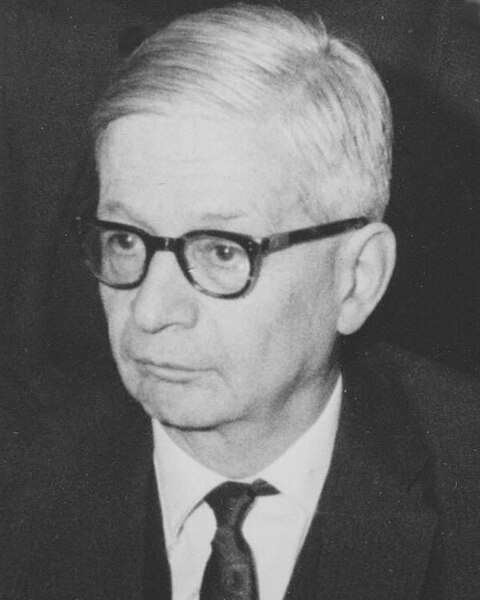Sir Rudolf Ernst Peierls, was a German-born British physicist who played a major role in Tube Alloys, Britain's nuclear weapon programme, as well as the subsequent Manhattan Project, the combined Allied nuclear bomb programme. His 1996 obituary in Physics Today described him as "a major player in the drama of the eruption of nuclear physics into world affairs".
Peierls in 1966
The Poynting Physics building at the University of Birmingham. Its mode of construction helped give rise to the phrase "redbrick university".
Peierls in 1937
Plaque commemorating the Frisch-Peierls memorandum at the University of Birmingham's Poynting Physics Building
Tube Alloys was the research and development programme authorised by the United Kingdom, with participation from Canada, to develop nuclear weapons during the Second World War. Starting before the Manhattan Project in the United States, the British efforts were kept classified, and as such had to be referred to by code even within the highest circles of government.
Lord Cherwell, scientific advisor to the Prime Minister, Air Chief Marshal Sir Charles Portal, Admiral of the Fleet Sir Dudley Pound, and Winston Churchill in June 1941.
William Penney, Otto Frisch, Rudolf Peierls and John Cockcroft each received the Medal of Freedom in May 1947.
University of Birmingham, blue plaque commemorating the authors of the Frisch–Peierls memorandum at the Poynting Physics Building.
Poynting (physics) Building at the University of Birmingham.







